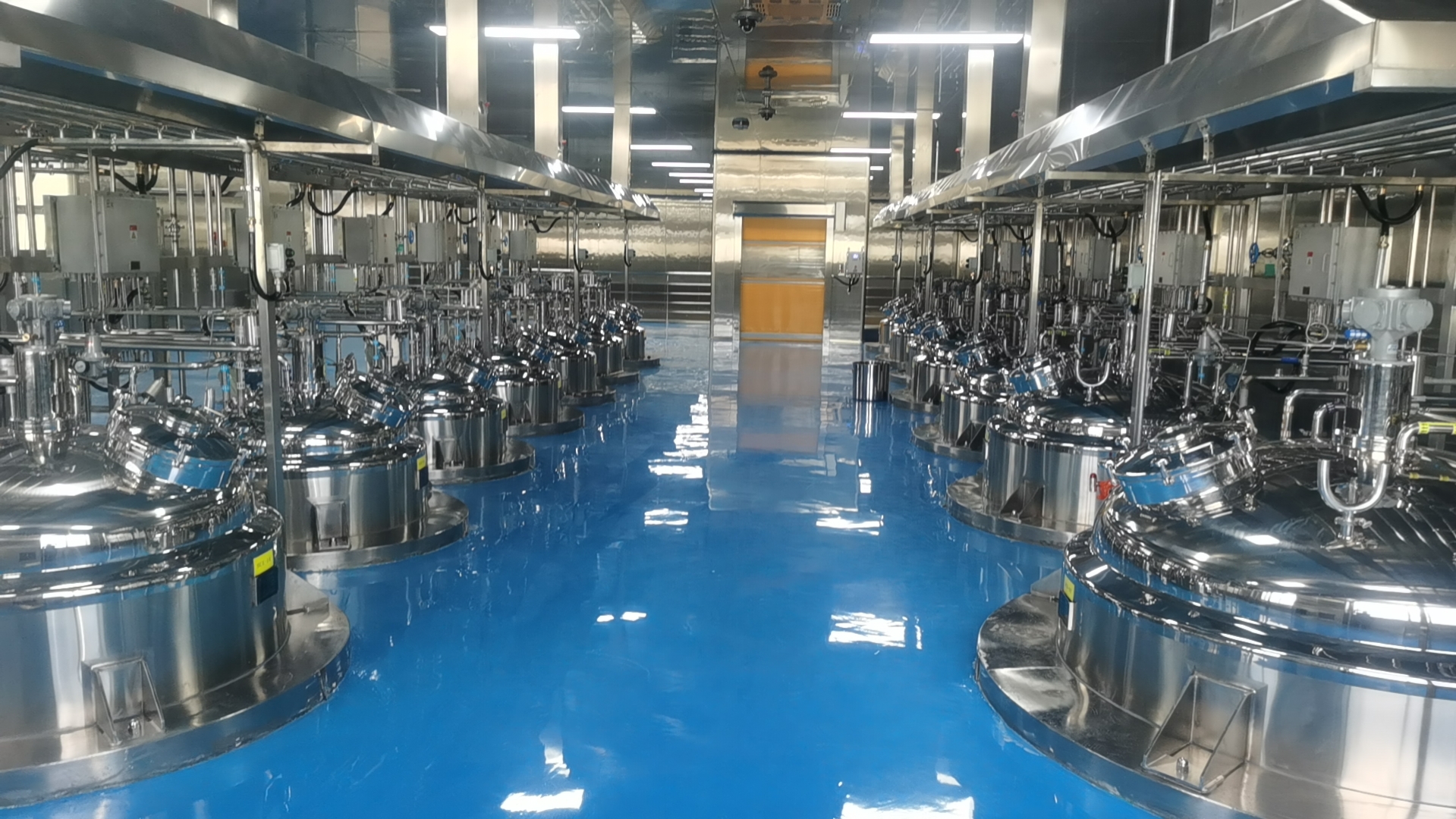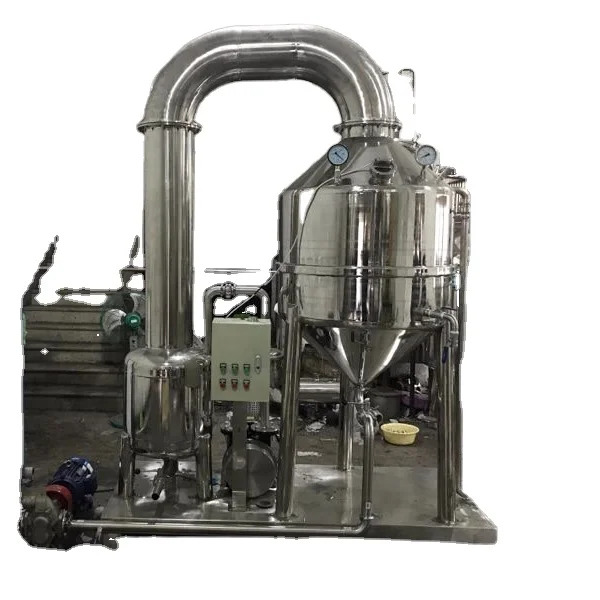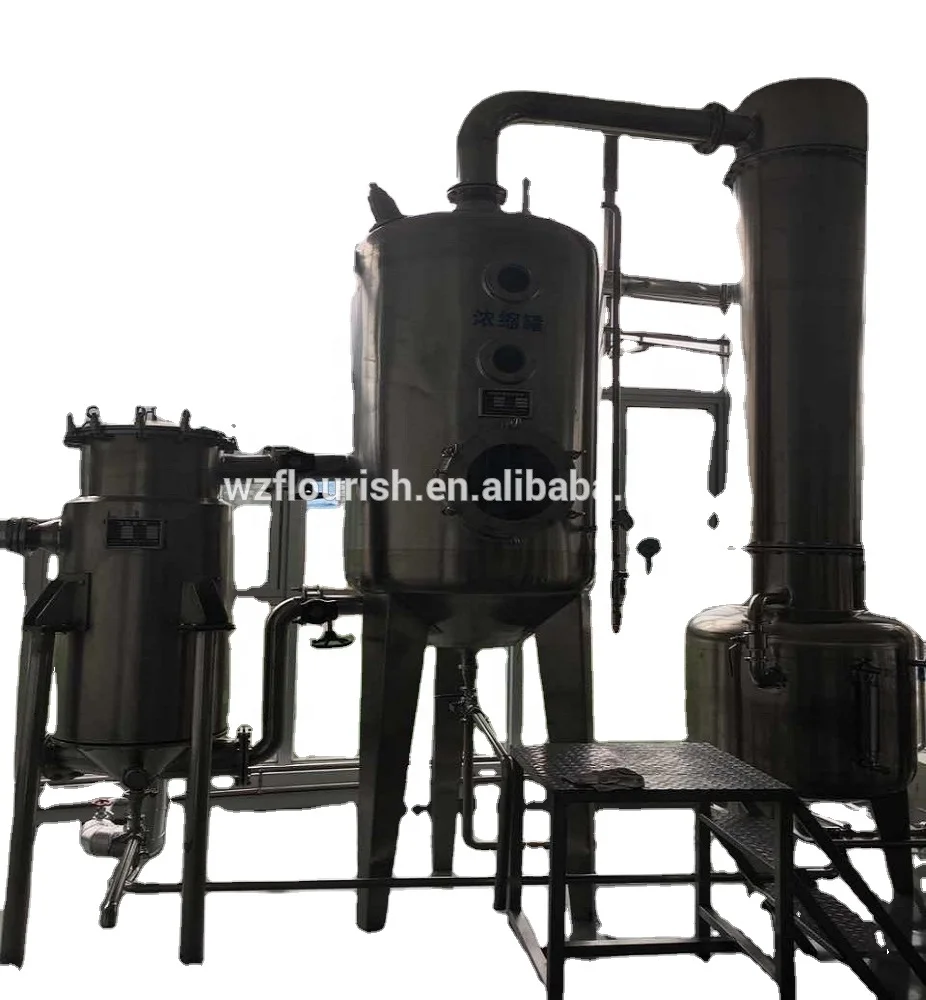
ABOUT
Wenzhou Vince Machinery Science Co., Ltd. was established in early 1980s. Our company covers an area of 6500 square meters and is an independent legal representative firm, possessing rich economic technology strength. Our company is a high tech enterprise and plays an important role in national dairy, foodstuff, pharmacy and machinery industries. We are a beverage machinery supplier.
Since the establishment, our company has mainly engaged in dairy products, foodstuff, beverage machinery, bean products, yellow wine, medicines and fermentation projects. What's more, our company supplies a complete sequence services in manufacturing, installation, test and personnel train, as well as the whole direction service design and consulting service on product project construction or enlargement artistic distribution engineering sets budget.
Vacuum Falling Film Evaporation for Energy Conservation
In the realm of industrial processes, evaporation plays a pivotal role in separating liquids from solids, concentrating solutions, or purifying materials. Traditional evaporation methods often entail high energy consumption, posing significant challenges to sustainability and economic efficiency. To address these concerns, vacuum falling film evaporation has emerged as a promising technology for energy conservation. This innovative technique leverages the principles of vacuum operation and falling film flow to enhance evaporation efficiency, resulting in substantial energy savings and improved process performance.
Working Principle of Vacuum Falling Film Evaporation
Vacuum falling film evaporation operates on the principle of reducing the boiling point of the liquid through the application of vacuum. By lowering the pressure within the evaporator, the boiling point of the feed solution is reduced, allowing for evaporation to occur at lower temperatures. This process utilizes a vertical evaporator tube where the feed solution is introduced at the top and flows downwards as a thin film along the inner surface of the tube. The heat required for evaporation is supplied externally, often through steam or hot water circulating within the jacket surrounding the evaporator tube.
As the thin film of liquid flows downwards, it is exposed to the low pressure and heat, leading to rapid evaporation. The evaporated vapor is then removed from the system through a condenser, leaving behind the concentrated liquid at the bottom of the evaporator. The key advantage of this system is its thin film flow, which provides a large surface area for heat transfer, enhancing evaporation efficiency and reducing the time required for the process.
Advantages of Vacuum Falling Film Evaporation for Energy Conservation
Vacuum falling film evaporation offers numerous advantages over conventional evaporation methods, making it an attractive choice for energy-conscious industrial processes.
Reduced Energy Consumption
The most significant advantage of this technology lies in its ability to significantly reduce energy consumption. By operating under vacuum conditions, the boiling point of the liquid is lowered, requiring less heat input for evaporation. This translates into substantial energy savings, reducing operating costs and minimizing the environmental impact of the process.
Improved Efficiency
The thin film flow in vacuum falling film evaporation facilitates rapid heat transfer, maximizing evaporation efficiency. The large surface area exposed to heat promotes faster evaporation rates, leading to increased throughput and reduced processing times.
Lower Operating Temperatures
Due to the reduced boiling point under vacuum, the evaporation process occurs at lower temperatures compared to atmospheric evaporation. This lowers the risk of thermal degradation of sensitive materials, maintaining product quality and minimizing the need for complex temperature control systems.
Minimal Scaling and Fouling
The rapid flow of the liquid film in vacuum falling film evaporators effectively prevents scaling and fouling on the evaporator surface. This minimizes downtime for cleaning and maintenance, ensuring continuous operation and optimal process efficiency.
Applications of Vacuum Falling Film Evaporation
Vacuum falling film evaporation finds wide application in various industries, including:
Food and Beverage Industry
Used for concentrating fruit juices, milk, and other food products, minimizing nutrient loss and preserving product quality.
Pharmaceutical Industry
Suitable for concentrating pharmaceutical solutions, purifying active ingredients, and producing highly concentrated products.
Chemical Industry
Employed in the production of chemicals, solvents, and other industrial products, enabling efficient concentration and purification processes.
Conclusion
Vacuum falling film evaporation presents a compelling solution for energy conservation in industrial processes. Its ability to reduce energy consumption, enhance efficiency, and minimize operating costs makes it a valuable technology for sustainable manufacturing. As the demand for energy-efficient solutions continues to grow, vacuum falling film evaporation is poised to play a crucial role in advancing industrial sustainability and optimizing process performance.
SUBSCRIBE
INQUIRY





